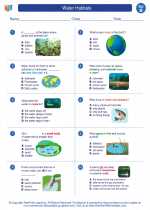Kidneys
The kidneys are two bean-shaped organs located on either side of the spine, below the ribs. They are a crucial part of the urinary system and play a vital role in maintaining the body's overall health and function.
Functions of the Kidneys:
- Filtration: The kidneys filter waste and excess substances, such as water, salts, and toxins, from the blood to form urine.
- Regulation of Fluid and Electrolyte Balance: The kidneys help regulate the body's fluid and electrolyte balance by adjusting the amount of water and salts excreted in the urine.
- Acid-Base Balance: They help maintain the body's acid-base balance by controlling the levels of acids and bases in the blood.
- Production of Hormones: The kidneys produce hormones that regulate blood pressure, stimulate red blood cell production, and help maintain healthy bones.
Common Kidney Conditions:
- Kidney Stones: Hard deposits of minerals and salts that form in the kidneys and can cause severe pain when passing through the urinary tract.
- Kidney Infections: Bacterial infections that can cause inflammation and damage to the kidneys if left untreated.
- Chronic Kidney Disease: A long-term condition where the kidneys gradually lose function over time, often due to conditions like diabetes or high blood pressure.
Study Guide:
- What are the functions of the kidneys?
- Where are the kidneys located in the body?
- Explain the process of urine formation in the kidneys.
- List and describe two common kidney conditions.
- Why is it important to maintain the health of the kidneys?
[Kidneys] Related Worksheets and Study Guides:
.◂Science Worksheets and Study Guides Second Grade. Water Habitats
Study Guide Water Habitats
Water Habitats  Activity Lesson
Activity Lesson Water Habitats
Water Habitats  Worksheet/Answer key
Worksheet/Answer key Water Habitats
Water Habitats  Worksheet/Answer key
Worksheet/Answer key Water Habitats
Water Habitats  Worksheet/Answer key
Worksheet/Answer key Water Habitats
Water Habitats  Worksheet/Answer key
Worksheet/Answer key Water Habitats
Water Habitats  Vocabulary/Answer key
Vocabulary/Answer key Water Habitats
Water Habitats  Vocabulary/Answer key
Vocabulary/Answer key Water Habitats
Water Habitats 

 Activity Lesson
Activity Lesson
 Worksheet/Answer key
Worksheet/Answer key
 Worksheet/Answer key
Worksheet/Answer key
 Worksheet/Answer key
Worksheet/Answer key
 Worksheet/Answer key
Worksheet/Answer key
 Vocabulary/Answer key
Vocabulary/Answer key
 Vocabulary/Answer key
Vocabulary/Answer key

The resources above cover the following skills:
LIFE SCIENCE (NGSS)
Biological Evolution: Unity and Diversity
Students who demonstrate understanding can:
Make observations of plants and animals to compare the diversity of life in different habitats[Clarification Statement: Emphasis is on the diversity of living things in each of a variety of different habitats.] [Assessment Boundary: Assessment does not include specific animal and plant names in specific habitats.]